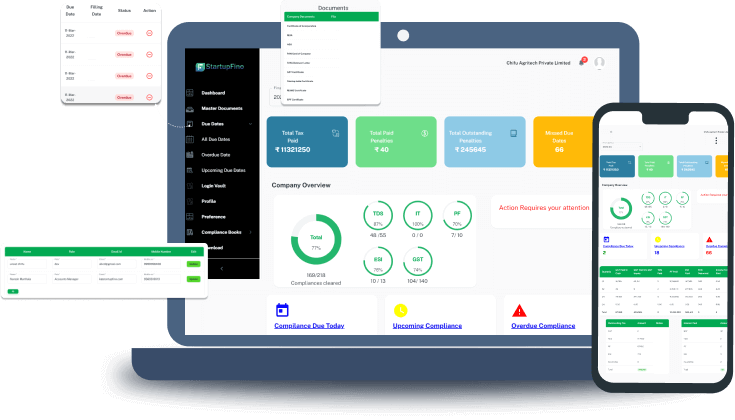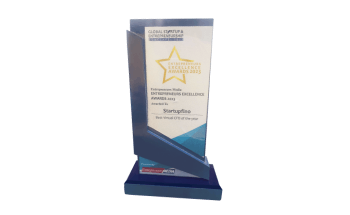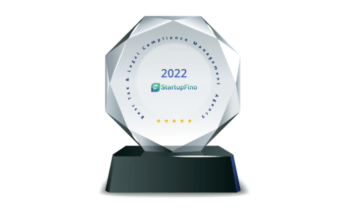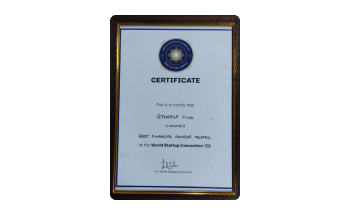Everywhere you look, from the familiar poly bags to water bottles, plastic consumption has become an undeniable part of our daily lives. India, as the most populated country generates around 3.4 million tonnes of plastic waste annually andmerely 30 percent of this substantial amount is subject to recycling.
To address this dire situation, the solution is Plastic Waste Management Authorisation. This strategic initiative ensures that the processing of plastic waste or as we can term it, plastic scrap, occurs in an environmentally responsible and efficient manner. The core objective is to instil a culture of recycling within India's plastic waste sector. By obtaining a Plastic Waste Management Authorisation Certificate, Plastic Waste Processors gain the means to adhere to existing waste management regulations, thus safeguarding their operations from legal complications.
Legislation Addressing Plastic Waste
According to the Plastic Waste Management Rules of 2016, the Minister of Environment, Forest and Climate Change emphasised a raise in the minimum thickness of plastic carry bags, increasing it from 40 microns to 50 microns. The Minister highlighted that a substantial amount of plastic waste, totalling 15,000 tonnes, is generated daily, with 9,000 tonnes being effectively collected and processed. The government later introduced amendments to the Plastic Waste Management rules in 2021, aiming to prohibit the usage of all single-use plastic items by the year 2022.
Role of Plastic Waste Management Authorisation in India
Plastic waste management authorisation plays a critical role in addressing the growing environmental concerns associated with plastic waste. The Plastic Waste Management Authorisation, governed by the Second Amendment of the Plastic Waste Management Rules 2022, is a vital regulatory framework introduced by the Indian government. This framework mandates certain requirements for Plastic Waste Processors and recyclers to ensure the responsible management of plastic waste.
Some basic concepts associated with Plastic Waste Management Authorisation are:
Plastic Waste and Plastic Waste Processor (PWP)
Plastic waste includes various forms of discarded plastic materials, including biodegradable and non-biodegradable plastics and thermoplastic materials. Given the escalating volume of plastic waste, effective processing and management have become imperative. The Plastic Waste Management Authorisation serves as an important tool in regulating and monitoring these activities, with a specific focus on accountability, traceability and transparency in fulfilling Extended Producer Responsibility (EPR) obligations.
A Plastic Waste Processor plays an important role in the plastic waste management ecosystem. PWPs are entities engaged in recycling plastic waste and processing it for various purposes, such as energy or oil production.
Extended Producer Responsibility
EPR is a fundamental environmental policy implemented by the Indian government which places the responsibility for plastic waste management on Producers, Importers and Brand Owners who introduce plastic products into the market. Many PIBOs collaborate with PWPs and recyclers to meet these responsibilities.
Importance of Plastic Waste Management Authorisation/Registration
Effective plastic waste management is important to reduce the environmental impact of plastic pollution. The Plastic Waste Management Authorisation and Registration process in India serves as an important mechanism to ensure responsible waste management practices. The key reasons why obtaining authorisation and registration for plastic waste management is significant have been given below:
1. Ensuring Legal Compliance
Indian laws mandate that Plastic Waste Processors and recyclers must obtain Plastic Waste Management Authorisation and a Certificate. This authorisation is essential to ensure that plastic waste processing aligns with waste management rules and regulations, allowing these entities to conduct their activities without the risk of legal violations.
2. Profitable Business Opportunity
The plastic waste management sector presents a significant business opportunity for entrepreneurs in India. Globally, the revenue generated by this sector exceeded $33 billion in 2021and continues to grow. India, with its increasing plastic waste, can capitalise on this opportunity. Obtaining a Plastic Waste Licence enables entrepreneurs to establish recycling and processing facilities, potentially yielding substantial returns on investment while simultaneously addressing plastic pollution.
3. Generation of Employment
Managing plastic waste, including recycling, demands a substantial workforce. Increased investment in the plastic waste management sector translates to the creation of numerous job opportunities for the people of India. The government's financial and marketing support to entities involved in this sector further reinforces its potential to generate large-scale employment.
4. Enhanced Market Reputation
For producers, importers and brand owners looking to fulfil their Extended Producer Responsibility obligations, partnering with Plastic Waste Processors and Recyclers holding Plastic Waste Management authorisation is the preferred choice. Such authorisation enhances the reputation and credibility of these processors and recyclers in the market. It signifies their commitment to responsible waste management practices and compliance with regulatory standards.
5. Environmental Benefits
Plastic Waste Management Certification promotes environmentally friendly recycling practices that minimise harm to the environment and public health. It encourages increased recycling of plastic waste, reducing the volume of plastic waste ending up in landfills and incineration plants.
Plastic Waste Management Authorisation and Registration are indispensable for promoting responsible plastic waste management, promoting economic opportunities and safeguarding the environment.
Categories of Plastic Packaging
Effective plastic waste management requires a comprehensive understanding of the diverse types of plastic waste, with a particular focus on plastic packaging waste. Plastic packaging waste is generated primarily for the protection, preservation, storage and transportation of various products. The characteristics of different plastic packaging materials significantly influence their environmental impact and processing methods. In line with the guidelines outlined in Extended Producer Responsibility (EPR) by the Ministry of Environment, Forest and Climate Change, plastic packaging waste can be categorised into four distinct categories, which are:
Category I: Rigid Plastic Packaging
Category I includes packaging constructed from rigid plastic materials designed to prevent deformation of their contents. These packaging materials are typically sturdy and unyielding, offering strong protection to the products they encase. Understanding this category is important for Plastic Waste Processors and Recyclers as it directly impacts the recycling targets set for Producers, Importers and Brand Owners (PIBOs) under EPR regulations.
Category II: Flexible Plastic Packaging
Category II covers packaging made from bendable plastic materials, which might have one layer or multiple layers and can be made of different types of plastics. Examples of packaging items in Category II include plastic sheets, carry bags, plastic sachets or pouches. This category's flexibility makes it suitable for various product types. Plastic Waste Processors and Recyclers must be well-versed in this category to assist PIBOs in achieving their recycling targets effectively.
Category III: Multi-Layered Plastic Packaging
Category III includes multi-layered packaging primarily composed of plastic. However, it differentiates itself by mandating the inclusion of at least one layer of material other than plastic. This category recognises the complexity of certain packaging materials that combine plastic and non-plastic layers.
Category IV: Plastic Sheets and Similar Materials
Category IV includes packaging made from plastic sheets or similar materials. This category covers items such as carry bags made from compostable plastic. Proper identification and classification of packaging falling under Category IV are essential for Plastic Waste Processors and Recyclers to facilitate responsible waste management practices.
Understanding these distinct categories of Plastic Packaging is very important for Plastic Waste Processors, Recyclers and PIBOs. It not only aids in complying with EPR regulations but also facilitates the achievement of recycling targets associated with each category, ultimately contributing to a more sustainable and environmentally responsible approach to plastic waste management.
Requirements for Setting Up a Plastic Waste Recycling Plant
Setting up a plastic waste recycling plant is a complex endeavour that requires careful planning and adherence to environmental regulations. Given below are the major requirements for establishing such a facility:
- Location and Premises:
- A dedicated and appropriately zoned location is essential for setting up a plastic waste recycling plant. Ensure that the chosen location complies with local zoning and environmental regulations.
- The premises should have adequate space to accommodate the various stages of plastic waste processing. It is important to keep the plastic waste segregated from the processing equipment to maintain safety and operational efficiency.
- Facility Infrastructure:
- A small room or factory-like structure is necessary to house the processing equipment and administrative offices.
- This space should be designed to meet safety and operational requirements.
- Recycling Equipment:
- Acquire the necessary recycling equipment, which may include shredders, granulators, extruders, washing linesand other machinery required for processing and converting plastic waste into usable materials.
- Ensure that the equipment is of the appropriate capacity and in good working condition to meet the recycling plant's production needs.
- Regulatory Compliance:
- Comply with all relevant environmental and waste management regulations at the local, regional and national levels. Obtain the required permits and licences for operating a plastic waste recycling plant.
- Develop and implement standard operating procedures to ensure compliance with environmental regulations and safety guidelines.
- Supply Chain:
- Establish a network of plastic waste suppliers who can consistently provide the required feedstock for recycling. This may involve collaboration with local businesses, municipalities, waste collection agencies or other sources of plastic waste.
- Ensure that the plastic waste obtained is clean, sorted and suitable for recycling.
- Workforce:
- Hire qualified and trained personnel to operate and maintain the recycling equipment. Staff should be knowledgeable about safety procedures and recycling processes.
- Employ administrative staff to manage logistics, documentation and regulatory compliance.
- Market for Recycled Products:
- Identify potential markets for the recycled plastic products you intend to produce. Establish relationships with buyers and customers who are interested in purchasing recycled materials.
- Business Plan:
- Develop a comprehensive business plan that outlines your plant's objectives, financial projections and sustainability goals. This plan will serve as a roadmap for your operations and may be required for securing funding or investments.
- Environmental Considerations:
- Implement environmental best practices, such as waste reduction, energy efficiency and pollution control measures, to minimise the environmental impact of your recycling plant.
Documents Required for Plastic Waste Management Authorisation on CPCB EPR Portal
Registering as a Plastic Waste Processor on the EPR portal developed by the Central Pollution Control Board is a mandatory step to ensure compliance with Plastic Waste Management rules. The list of documents to submit during the registration process are:
- Company Documents:
- GST certificate
- PAN card of the company
- Corporate Identification Number (CIN) of the company
- Authorised Person's Documents:
- Aadhar card of the authorised person
- PAN card of the authorised person
- Process Information:
- Consents and Authorisations:
- Mandatory consents under the Air and Water Act
- Authorisations under Hazardous Waste Management (HWM) rules issued by the State Pollution Control Board (SPCB) or Pollution Control Committee (in the case of Union Territories)
- Geotagged Photographs:
- Pictures with geotags of the raw material storage area
- Pictures with geotags of the production area
- Pictures with geotags of the product dispatch area
- Pictures with geotags of the machinery installed in the plastic waste processing plant
- Utility Bill:
- Copy of the electricity bill
- Waste Characterisation Report:
- An analysis report detailing the characterisation of waste generated
- Occupational Safety and Health Documents:
- Copy of documents providing information about occupational safety and health aspects
- Pollution Control Measures:
- Copy of documents detailing the measures in place to control pollution
- Disaster Management Plan:
- Copy of documents outlining onsite/offsite disaster management plans
- Cover Letter:
- A cover letter accompanying the application
- Additional Information:
- Any other documents or information that the PWP wishes to submit
Documents Required to Get Plastic Waste Management Certificate from SPCB
To obtain a Plastic Waste Management Certificate from the State Pollution Control Board, some of the additional documents are required. These documents include:
- Company Documents:
- GST certificate
- PAN card of the company
- Corporate Identification Number (CIN) of the company
- Authorised Person's Documents:
- Aadhar card of the authorised person
- PAN card of the authorised person
- Consent Documents:
- Copy of Consent to Establish (CTE) with existing validity
- Copy of Consent to Operate (CTO) with existing validity
- Process Information:
- Hazardous Waste Authorisations:
- Valid consent and authorisation under Hazardous Waste Act
- Project Documentation:
- Detailed Project Report (DPR)
Compliance with these document requirements is essential for PWPs to operate legally and contribute to responsible plastic waste management practices in accordance with PWM rules and regulations.
Process to Apply for Plastic Waste Processor (PWP) Registration
Registering as a Plastic Waste Processor on the centralised Extended Producer Responsibility portal for Plastic Packaging is an important step in ensuring compliance with plastic waste management regulations. Given below is the process for PWP registration in India:
- Documentation Preparation:
- The initial step for a PWP is to gather and organise all the necessary documents required for the registration.
- Application Form Submission:
- Access the CPCB EPR portal, where the registration process is facilitated.
- Fill out the applicable application form provided on the portal.
- Attach all the requested documents to the application form as per the specified requirements.
- Application Processing:
- Once the application and attached documents are submitted on the CPCB EPR portal, the CPCB officials will initiate the processing of the application.
- CPCB officials will review the application and the submitted documents for verification purposes.
- Double-Checking and Contact:
- If there are mistakes or something important is missing in the application, CPCB officials will tell the applicant within seven working days of getting the application.
- The applicant needs to reply to CPCB's message within thirty days of receiving it. If not, the application might be considered cancelled.
- Making the Registration Certificate:
- If the CPCB doesn't reply to the applicant within one month of getting the complete application, they'll assume the PWP registration certificate is ready.
- If the CPCB staff take too long to handle the application, they have to explain why and they'll be responsible for the delay.
- Cancelling PWP Registration:
- If, during the CPCB's checks, an outside reviewer or at any other time, they find out that any information or document given is not true, the PWP registration might be cancelled.
- If the CPCB sees a PWP breaking its rules, they'll let the concerned group know about the violation.
- The PWP will get a chance to explain their side to the CPCB within fifteen days of getting the notice.
Procedure to Obtain Plastic Waste Management Authorisation from SPCB/PCC
Obtaining Plastic Waste Management Authorisation is an important step for entities involved in plastic waste processing. This authorisation is granted by the concerned SPCB or Pollution Control Committee under whose jurisdiction the entity operates. The procedure for obtaining this authorisation is as follows:
- Document Preparation:
- Gather and organise all the required documentation for the Plastic Waste Management Certificate application. Ensure that all documents are complete and in compliance with the regulations.
- Application Form Submission:
- Visit the official portal of the relevant State Pollution Control Board (SPCB) or Pollution Control Committee (PCC).
- Locate and fill out the registration application form for the Plastic Waste Management Certificate.
- Ensure that all required information is accurately filled in and attach the necessary documents as specified.
- Document Inspection:
- Submit the completed application form along with the attached documents on the SPCB/PCC portal.
- The officials from the SPCB/PCC will review the submitted documents and information for accuracy and compliance with plastic waste management regulations.
- Grant of Plastic Waste Licence:
- If the officials from the SPCB/PCC find that all submitted information and documents are satisfactory and in compliance with the regulations, they will proceed to grant the Plastic Waste Licence.
- Once the authorisation is granted, the entity will be legally permitted to engage in plastic waste processing activities.
- Refusal of Application:
- If the applicant provides wrong information or documents that don't meet the rules, the SPCB/PCC can reject the registration request.
- The applicant will be told about the rejection and can fix the problems within a given time.
Entities seeking this authorisation should consult the relevant SPCB or PCC and review their specific guidelines and requirements to ensure a smooth and compliant application process. Compliance with these regulations is essential for responsible plastic waste management and environmental protection.
Recycling Process of Plastic Waste
Recycling plastic waste is a complex process which has many stages, including:
- Collection and Distribution:
Plastic waste is initially collected from various sources, including homes, businesses and public waste bins. Government organisations or private companies often undertake this collection process.
- Sorting and Categorising:
After collection, the plastic waste is transported to recycling facilities, where it undergoes sorting and categorisation. Advanced machinery and equipment are used in recycling plants to efficiently separate and categorise plastics based on their type and characteristics.
- Washing:
Washing is a critical step in the plastic recycling process. It aims to remove impurities such as product labels, adhesives, etc. from the plastic waste.
- Shredding:
The cleaned plastic waste is then broken down into smaller pieces. These smaller plastic fragments are more manageable for further processing.
Shredding also facilitates the detection and removal of any remaining contaminants, such as metals, which can be separated using magnets.
- Plastics Identification and Separation:
In this stage, the plastic fragments are sorted and separated based on their class and quality. Density separation is employed, where plastic particles are floated in a water container to separate them.
Another test known as "air classification" is performed to assess the thickness of the plastic fragments. Thinner components float, while thicker portions settle at the bottom.
- Compounding and Extrusion:
The final step in the plastic recycling process involves converting the shredded plastic particles into usable products for manufacturers. This is achieved through compounding and extrusion.
The shredded plastic is melted and blended to create pellets, which can serve as raw material for various manufacturing applications.
Why Choose StartupFino for Plastic Waste Management Authorisation?
Setting up a plastic waste recycling plant and obtaining a Plastic Waste Management authorisation is a significant undertaking that requires careful consideration of a number of requirements. It is essential to operate responsibly and sustainably to contribute to plastic waste reduction and environmental conservation. Additionally, consulting with industry experts like StartupFino and seeking guidance is advisable to ensure a smooth and compliant process.
StartupFino is a company that specialises in offering complete services for Plastic Waste Management authorisation. We can help you with everything from providing advice in the initial phase to ensuring that you meet all the necessary requirements and compliances for Plastic Waste Management authorisation.































































